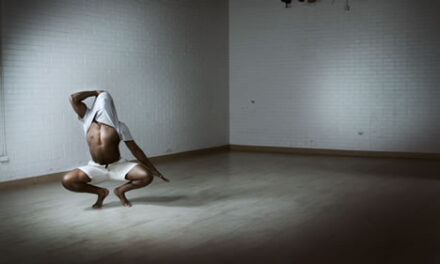The Brevard Music Center‘s 82nd season is already in its second full week in beautiful Brevard with both expanded programming and focused learning opportunities. Among the latter are occasions to hear the varied repertory of Leonard Bernstein, whose centennial of birth has occasioned an eight-event “festival within a festival,” and two cycles of Beethoven quartets numbering five works in all. (His complete quartets will eventually be heard at the Center over a period of three years.) On July 2, the world-famous Shanghai Quartet packed the Porter Center at Brevard College for a performance of Op. 18, No. 5, Op. 74, and Op. 59, No. 2, works that embraced his early years, through 1809. This second concert by the same ensemble opened with Op. 130, an astonishing late work of ca. 1824, and concluded with another of the “Razumovsky” Quartets, Op. 59, No. 1.
The Shanghai Quartet members are first violinist Weigang Li, violinist Yi-Wen Jiang, violist Honggang Li, and cellist Nicholas Tzavaras, the only American in the ensemble. Formed in 1983 at the Shanghai Conservatory, the ensemble has enjoyed critical acclaim around the world as performers and champions of both traditional Western repertory and contemporary music. They are currently Quartet-in-Residence at the John J. Cali School of Music at Montclair State University in New Jersey.
These musicians have a relatively quiet demeanor and play with studied concentration. Except for the cellist, they seldom looked up from their scores at each other or reacted to either the humor or gravity of their music. They play with fantastic precision and great economy of motion, eschewing the gesticulations of other groups. What seemed to be missing generally was richness of tone.
Op. 130’s opening Adagio ma non troppo tested their powers of concentration as the movement swept from lyrical passages to frenzied, knotty flourishes, and then to new plateaus of emotional expression. It is impossible to anticipate where this music is going, and like a jet fighter swooping around hills, the ensemble navigated Beethoven’s tricky terrain as one. The second movement Presto flew by in mere minutes – yet the ensemble pulled us in close for the ride.
The third movement, Andante con moto ma non troppo, features a comical walking cello part (played straight-faced) and some exquisite voicing. The robust Alla danza tedesca was followed by the gorgeous Cavatina, the emotional focal part of the quartet. Here, late in the movement, the first violinist executed the famous “beklemmt” passage of hesitant, disjointed and heart-breaking phrases with riveting skill, casting a spell well after the last notes of the movement sounded. The quartet members sat in freeze-frame stance for some time, savoring the moment with the audience. What a moment!
The Finale, a thicket of contrapuntal workings and unexpected twists and turns was a crowd-pleaser that brought the audience to its feet in acclaim. The misconception about Beethoven’s late works is that audiences won’t like them due to their complexity and strangeness. Countering this is a remark that I overheard during intermission. A woman said that while she didn’t understand the music, it spoke to her. Beethoven would have been so pleased!
Op. 59, No. 1’s Allegro opens with a singing cello solo which moves to the other parts before the lyricism hits the rocks. The ebb and flow of energy with volcanic outbursts brimmed with tension, ratcheted higher and higher to great effect. The second movement, Allegretto vivace, which stems from a throbbing rhythmic figure featured some of the best ensemble playing of the evening with its great number of close instrumental exchanges. The third movement, Adagio molto e mesto, is noteworthy for its dark minor broodings but could have used a richer sound projection from the first violin. The final movement, Allegro, contains the Russian theme for which this opus of three quartets is famous. In this case, the melody “Ah! Whether It’s My Luck, Such Luck!” formed a light-hearted but sophisticated closer for this great piece. Again, the audience was on its feet voicing its acclaim.
The Brevard Music Festival formally continues through August 5. For details, see our calendar.











